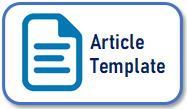Futures Contracts in Islamic Finance: An Analytical Approach
DOI:
https://doi.org/10.14421/grieb.2013.011-03Keywords:
Futures Contracts, Hedging, Islamic FinanceAbstract
Futures contracts provide a useful means of reducing risk because these are highly liquid instruments that can be entered into or liquidated at any time. However, the debate on the legitimacy or otherwise of these contracts in the Islamic commercial law continues to invoke different contentions. The paper accentuates the fact that futures contracts are at bottom a new phenomenon of this age which have no precedent or parallel in the conventional law of transactions (muamalat). Therefore their legality or otherwise should be looked into with the Islamic viewpoint of general permissibility in relation to transactions. The paper examines a number of jurisprudential and legal issues such as non-existence of the subject-matter, sale prior to taking possession, bai al-kali bil-kali, speculation and hedging, and concludes that futures contracts are allowed to benefit from. However, only hedgers can take advantage of them. These instruments can never be used for purely speculative purposes where making or taking delivery is not intended. Although it is not necessary to pay the complete price to the seller at the time of the contract yet some other precautionary measures such as a bank guarantee or a fair amount of money to be given to the seller should be taken to ensure that pure speculation is scrupulously forestalled and the delivery would certainly be made.References
Abdelwahab, O, 2007. Developmental Perspectives on Financial Innovation in Forward and Futures Derivatives: A Critical Discussion with Special Consideration of Islamic Banks and Financial Institutions. [On-line]. Available from World Wide Web: http://opus.kobv.de/tuberlin/volltexte/2007/1568/pdf/abdelwahab_osama.pdf. [Accessed 13th November, 2011].
Abu Dawud, 2008. Sunan Abu Dawud. Riyadh: Darussalam
Al-Amine, M.A.M., 2005. Commodity Derivatives: An Islamic Analysis. In: Iqbal, M. & Khan, T.(eds.). Financial Engineering and Islamic Contracts. New York: Palgrave Macmillan, 58-98
Al-Bukhari, A., 1997. Sahih Al-Bukhari. Riyadh: Darussalam.
Al-Dhareer, S.M.A., 1997. Al-Gharar in Contracts and its Effect on Contemporary Transactions. Jeddah:Islamic Research and Training Institute.
Al-Hajjaj, M.B., 2007. Sahih Muslim. Riyadh: Darussalam.
Al-Jazeeri, A., 1986. Kitab Al-Fiqh Ala Mazahib Al-Arba. Beirut: Dar Ihya Al-Turas Al-Arabi.
Al-Kandhalwi, M.Z. (n.d.). Awjaz Al-Masalik Ila Muwatta Imam Malik. Multan: Idara Taleefate-Ashrafiya.
Al-Shawkani, M. (n.d.). Nayl Al-Awtar. Ansar Al-Sunnah, Lahore: Al-Muhammadiyya.
Al-Suwailem, S., 2006. Hedging in Islamic Finance. Jeddah: Islamic Research and Training Institute.
Al-Zuhayli, W. (n.d.). Al-Fiqh Al-Islami Wa Adillatuhu. Quetta: Maktaba Rashidiya.
Apte, P.G., 2007. International Financial Management. New Delhi: Tata McGraw-Hill Publishing Company Limited.
At-Tirmidhi, E., 2007. Jami At-Tirmidhi. Riyadh: Darussalam.
Dali, N.R.S.M. & Ahmad, S., 2005. A Review of Forward, Futures and Options from the Shariah Perspective: from Complexity to Simplicity. In: Conference on Seminar Ekonomi & Kewangan Islam, 29-30 August 2005, ESSET Bangi.
A.W. & Mokhtar, S., 2010. The Concept and Operations of Swap as a Hedging Mechanism for Islamic Financial Institutions. [On-line]. Available from World Wide Web: http://www.isra.my/media-centre/downloads/finish/29-isra-research-paper/216-theconcept-and-operations-of-swap-as-a-hedging-mechanism-for-islamic-financialinstitutions-no-142010/0.html [Accessed 6th July, 2011].
Ebrahim, M.S. & Rahman, S., 2005. On the Pareto-Optimality of Futures Contracts over Islamic Forward Contracts: Implications for the Emerging Muslim Economies. Journal of Economic Behavior & Organization, 56, 273-295.
El Gari, M.A., 1993. Towards an Islamic Stock Market. Islamic Economic Studies, 1(1), 1-20.
Ghoul, W., 2008. Risk Management and Islamic Finance: Never the Twain shall Meet. The Journal of Investing, 17(3), 96-104.
Gilani, S.M.A. (n.d.). Islami Maasheyaat. Karachi: Darul Ishaat.
Gupta, S.L., 2006. Financial Derivatives: Theory, Concepts and Problems. New Delhi: Prentice-Hall of India Private Limited.
Gurusamy, S., 2004. Financial Services and Markets. Chennai: Vijay Nicole Imprints Private Limited.
Hassan, H.H., 1985. Beema Ki Shari Hasiyat. Islamabad Idara Tahqeeqat-e-Islami.
Hull, J.C., 2007. Options, Futures and Other Derivatives. New Delhi: Prentice-Hall of India Private Limited.
Ibn Hazm., 1988. Al-Muhalla Bil Aathar. Beirut: Dar Al-Kutub Al-Ilmiya.
Ibn Qudamah., 2004. Al-Mughnee. Beirut: Dar Al-Kutub Al-Ilmiya.
Ibn Rushd. (n.d.). Bidayat Al-Mujtahid Wa Nihayat Al-Muqtasid. Lahore: Faran Academy.
International Shariah Research Academy for Islamic Finance., 2011. Kuala Lumpur: Islamic Financial System: Principles and Operations.
Islamic Fiqh Academy of India, 2001. New Delhi: Important Fiqh Decisions.
Islamic Fiqh Academy of India. (n.d.). Jadid Tijarti Shaklain. Karachi: Idaratul Quran Wal Uloom Al-Islamiyah.
Kamali, M.H., 1996. Islamic Commercial Law: An Analysis of Futures. The American Journal of Islamic Social Sciences, 13(2), 197-224.
Kamali, M.H., 1999a. The Permissibility and Potential of Developing Islamic Derivatives as Financial Instruments. IIUM Journal of Economics and Management, 7(2), 73-86.
Kamali, M.H., 1999b. Prospects for an Islamic Derivatives Market in Malaysia. Thunderbird International Business Review, 41(4/5), 523-540.
Kamali, M.H., 2001. Istihsan Or Maliyati Umoor. Islamabad: International Institute of Islamic Economics, International Islamic University.
Kamali, M.H., 2002. Islamic Commercial Law: An Analysis of Futures and Options. Cambridge: The Islamic Texts Society.
Kamali, M.H., 2005. Fiqhi Issues in Commodity Futures. In: Iqbal, M. and Khan, T. (eds.). Financial Engineering and Islamic Contracts. New York: Palgrave Macmillan, pp 20-57.
Khan, M.A., 1988. Commodity Exchange and Stock Exchange in Islamic Economy. The American Journal of Islamic Social Science, 5(1), 91-114.
Mansuri, M.T., 2005. Islamic Law of Contracts and Business Transactions. Shariah Academy, International Islamic University Islamabad.
Muhammad, Y.S., 2000. Jami Al-Fiqh. Mansura: Dar Al-Wafa.
Naughton, S. & Naughton, T., 2000. Religion, Ethics and Stock Trading: The Case of an Islamic Equities Market. Journal of Business Ethics, 23, 145-159.
Obaidullah, M., 1998. Financial engineering with Islamic Options. Islamic Economic Studies, 6(1), 73-103.
Obaidullah, M., 1999. Financial Options in Islamic Contracts: Potential Tools for Risk Management. Islamic Economics, 11, 3-6.
Obaidullah, M., 2001. Regulation of the Stock Market in an Islamic Economy. In: Iqbal, M. (ed.). Islamic Banking and Finance: Current Developments in Theory and Practice. Leicester: The Islamic Foundation , 185-222.
Obaidullah, M., 2002. Islamic Risk Management: Towards Greater Ethics and Efficiency. International Journal of Islamic Financial Services, 3(4).
Rehman, G., 1993. Hurmat-e-Sood: Ishkalat Ka Ilmi Jaeza. Lahore: Idara Maarif-e-Islami.
Saunders, A. & Cornett, M.M., 2007. Financial Markets and Institutions. New Delhi: Tata McGraw-Hill Publishing Company Limited.
Siddiqui, A., 2008. Financial Contracts, Risk and Performance of Islamic Banking. Managerial Finance, 34(10), 680-694.
Smullen, J. & Hand, N. (eds.), 2005. Oxford Dictionary of Finance and Banking. Oxford University Press.
Sole, J., 2007. Introducing Islamic Banks into Conventional Banking Systems. IMF Working Paper
Usmani, M.T., 2005. An Introduction to Islamic Finance. Karachi: Maktaba Maariful Quran.
Wilson, R., 1991. Islamic Financial Instruments. Arab Law Quarterly, 6(2), 205-214.
Downloads
Published
Issue
Section
License
Global Review of Islamic Economics and Business is licensed under a
Creative Commons Attribution-ShareAlike 4.0 International License



















